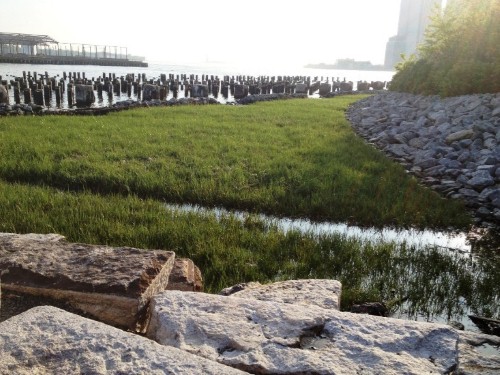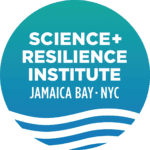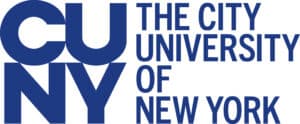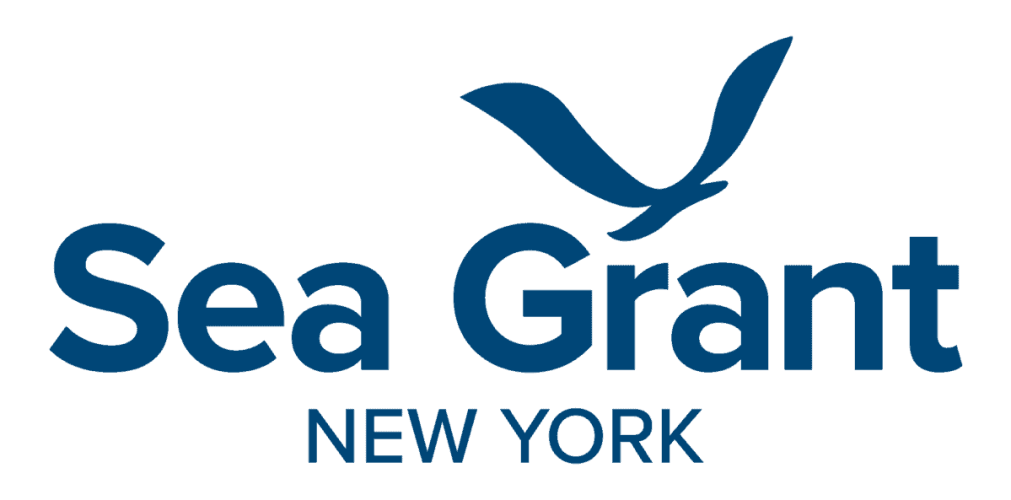For those involved in shoreline management, “natural and nature-based features” is the most recent buzz in resilient coastal design. Experimentation with greener alternatives to hardened shoreline structures – such as living shorelines, ecologically-enhanced breakwaters and bulkheads, and constructed marshes – have begun to proliferate in New York and beyond. Yet despite a sense of optimism about these strategies, they are still relatively new, and many questions still remain about how well they can truly deliver risk reduction, ecological and community benefits.

Thanks to support from NYSERDA, NYS Department of State, and NOAA, Measuring Success: Monitoring Natural and Nature-Based Shoreline Features in New York State will develop a coherent monitoring framework to evaluate the performance of nature-based features and other shoreline management measures to achieve benefits, such as hazard reduction, ecological health, and community benefits, across varying coastline conditions in New York state, including New York City Harbor, Long Island, Hudson River and the Great Lakes. The framework will be based on a strong scientific and technical foundation and with broad buy-in from agencies, practitioners, and civic groups.
(Photo Credit to NYC Parks)
The project kicked off in earnest in January by our core team, which is made up of over 25 individuals ranging from urban ecologists and sociologists to agency personnel to practicing landscape architects and engineers. A Project Advisory Committee with local and national experience provides important project guidance. Over the course of 2018, we will also be convening Technical Working Groups to develop the monitoring approach in detail, and then refine it with the input of local and regional stakeholders in a series of workshops across the state. In 2019, we will test it at pilot sites throughout the state.
“This project will gather valuable data on nature-based approaches that can inform state shoreline policy, permitting and funding decisions,” says Kristin Marcell, Climate Resilience Project Coordinator at the NYS DEC Hudson River Estuary Program. “By bringing together technical experts with NGOs and agencies, we can ensure that we all agree on a standard way to evaluate shoreline approaches throughout the diverse coastal areas of New York.”
Led by the Science and Resilience Institute at Jamaica Bay, the team is comprised of ARCADIS, City University of New York (CUNY), Consensus Building Institute, New York-New Jersey Harbor and Estuary Program, New York Sea Grant, NYC Department of Parks and Recreation, NYS Department of Environmental Conservation, SCAPE Landscape Architecture, the US Forest Service – NYC Urban Field Station and the New School.
For more information about this project, please contact project manager Jessica Fain (Jessica.fain@brooklyn.cuny.edu)






